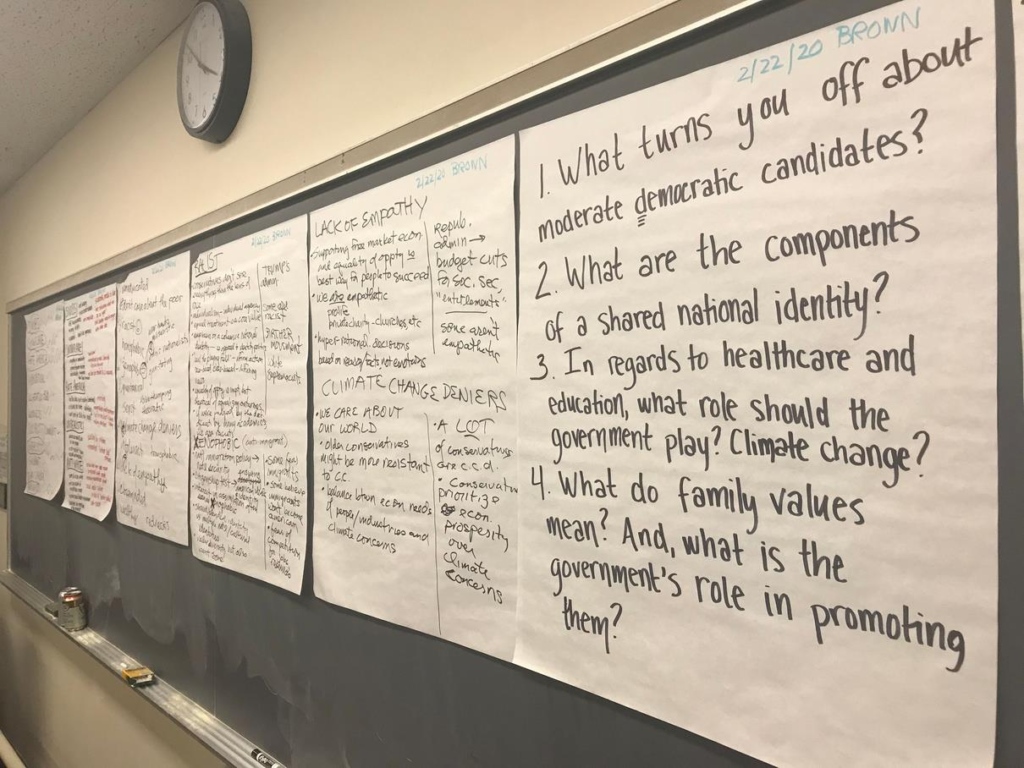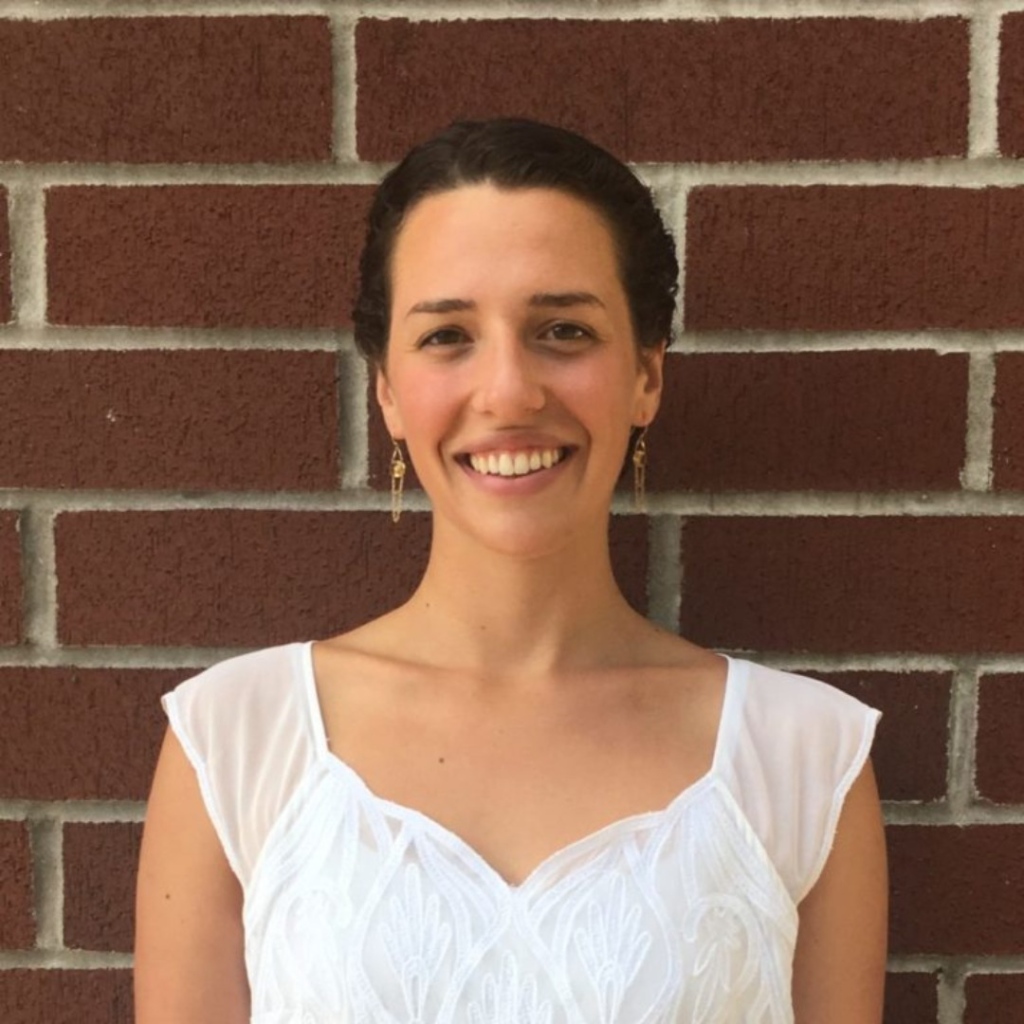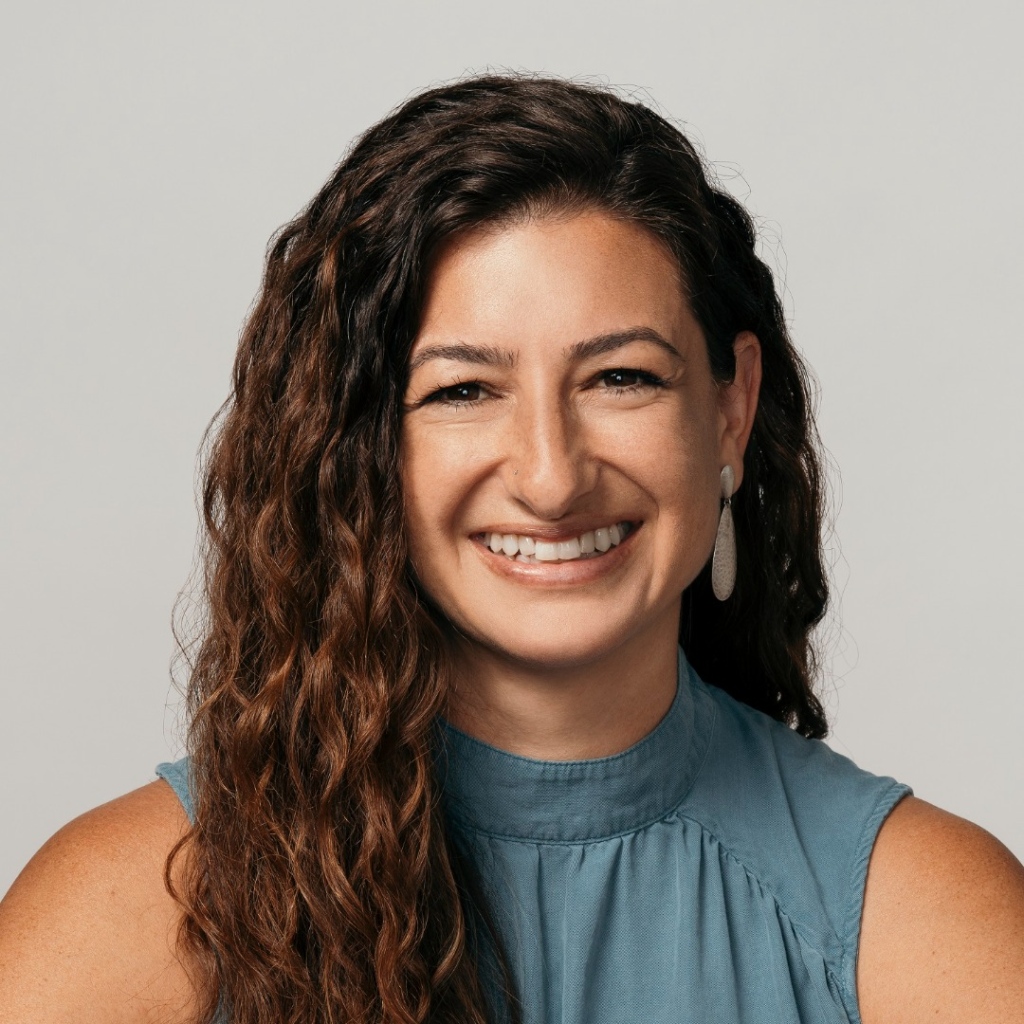Can Americans Depolarize? Assessing the Effects of Reciprocal Group Reflection on Partisan Polarization

February 24, 2022
Seminar Series on Democracy, Conflict, & Polarization: Can Americans Depolarize? Assessing the Effects of Reciprocal Group Reflection on Partisan Polarization
In the third event of the Democracy, Conflict, and Polarization Seminar Series, we presented results from a study focused on one model of depolarizing partisans – reciprocal group reflection – inspired by marital counseling and implemented by a non-governmental organization, Braver Angels. A randomized controlled trial of workshops across four American universities showed that this model can significantly reduce polarization according to explicit and implicit measures and increase participants’ support for depolarization.
The panel discussion featured researchers, Hannah Baron (Brown University), Robert Blair (Brown University), and Jessica Gottlieb (University of Houston), along with implementing partner, Bill Doherty, co-founder of Braver Angels, a citizens’ organization uniting red and blue Americans in a working alliance to depolarize America.
Results
- The Braver Angels workshops significantly reduced polarization according to explicit and implicit measures.
- The workshops also increased participants’ willingness to donate to programs aimed at depolarizing political conversations.
Policy Implications: depolarization is especially effective when it includes both informational and emotional components, such that citizens who are moved to empathize with outgroup members become more likely to internalize new information about them.
Link to policy brief: https://egap.org/resource/couples-therapy-for-a-divided-america-evaluating-the-effects-of-a-depolarization-workshop/
Link to preprint: https://osf.io/3x7z8/
Link to Q&A with Members Series: https://egap.org/resource/qa-with-members-series-blair-gottlieb-robinson-west/
Watch the full presentation and Q&A below. After viewing the recording, please post a comment or question at the bottom of the page to participate in an ongoing discussion on this topic. If you prefer to download/listen to it as a podcast, click here.
Panelists

Hannah Baron is a Ph.D candidate in Comparative Politics at Brown University. Her research examines policing, vigilantism, and justice attitudes in contexts of high crime and weak rule of law. Her dissertation analyzes citizen preferences vis-à-vis crime response and prevention in Mexico and Colombia. She holds a B.A. in Romance Languages and Literatures and Studies of Women, Gender, and Sexuality from Harvard.

Robert Blair is an Associate Professor of Political Science and International and Public Affairs at Brown University. His research focuses on international intervention and the consolidation of state authority after civil war, with an emphasis on rule of law and security institutions. He has conducted fieldwork on these and related topics in Colombia, Liberia and Côte d’Ivoire. He holds a B.A. from Brown and a Ph.D in political science from Yale University.

Bill Doherty is a co-founder of Braver Angels and the creator of the Braver Angels workshop approach. Braver Angels is a citizens’ organization uniting red and blue Americans in a working alliance to depolarize America. Since 2016, Braver Angels has held its Red/Blue workshops, bringing together a group of conservatives and liberals for a series of exercises designed to help participants clarify disagreements, reduce stereotyped thinking, and discover common values, in communities and at universities across the U.S.

Jessica Gottlieb is an Associate Professor at the Hobby School of Public Affairs at University of Houston. She earned her PhD in political science and Master’s degree in economics from Stanford University. Her research investigates constraints to democratic accountability in low-income countries; these include information asymmetries and problems of voter coordination, informal institutions and clientelism, and unequal gender norms.

David Broockman is an Associate Professor of Political Science at UC Berkeley. His current research focuses on the application of randomized experiments to political persuasion and volunteerism. His work has previously appeared in the American Journal of Political Science, Political Analysis, and other outlets.